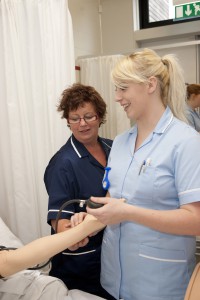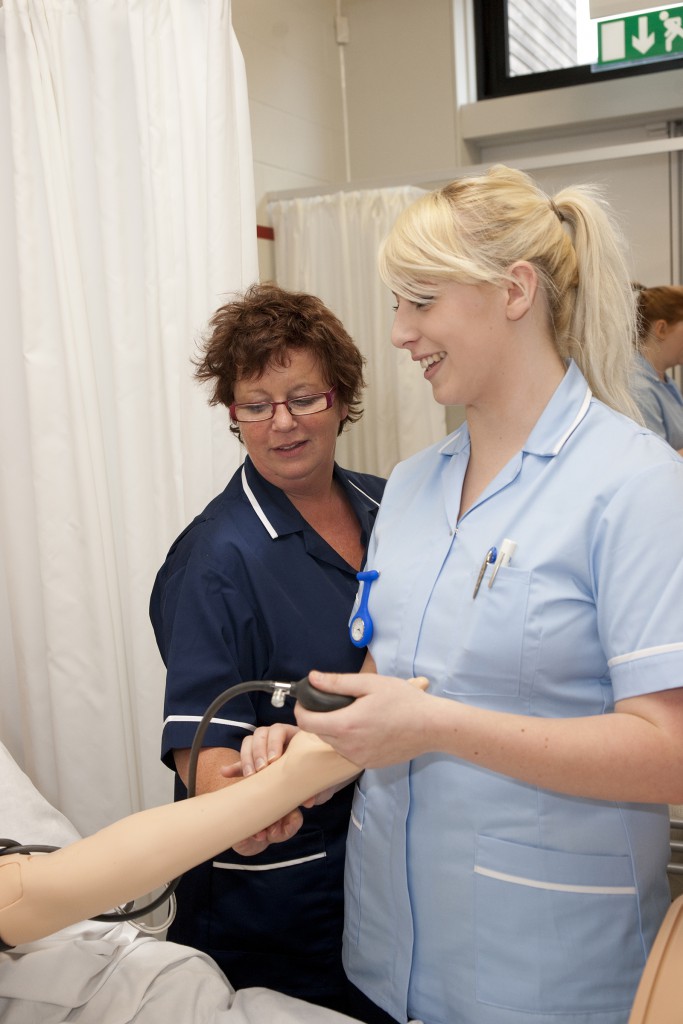
The University of Lincoln is producing new generations of nurses to meet the workforce needs of its local healthcare community.
Almost 100 new nurses began work on the wards of Lincolnshire’s hospitals in the summer/autumn of 2015 after completing their undergraduate degrees with the University of Lincoln in the 2014/15 academic year. It was the largest single cohort of nursing students to graduate from Lincoln since the University was selected to deliver all adult and mental health pre-registration nursing training for the county of Lincolnshire in 2012.
Lincoln’s Nursing programmes are delivered by an experienced team in the University’s School of Health & Social Care. Their aim is to produce excellent graduates who can work in hospital and community settings, grounded in the importance of good quality, evidence-based, up-to-date nursing practice. Students spend 50% of their three-year degree programme working in practice, many of them on placement in the settings in which they are subsequently offered jobs.
Fundamental to this focus on up-to-date practice is Lincoln’s Student as Producer ethos. For example, in 2013 nursing student Charlotte Johnston, supported by her peers and academic staff in the School of Health & Social Care, organised the UK’s first ever student nurse conference dedicated to pressure ulcer prevention. More than 500 student nurses attended. Charlotte was named among the Health Service Journal’s Rising Stars and Nursing Times’ Leaders in 2014, despite only being in her second year at the time.
The School’s collaboration with NHS Improving Quality was also nominated for the award Partnership of the Year at the Student Nursing Times Awards 2014.
The University of Lincoln’s contribution to local workforce development extends beyond undergraduate education. Lincoln also offers a range of courses for qualified healthcare professionals to further advance their skills through its Professional Development Centre. This includes a portfolio of Learning Beyond Registration (LBR) courses in subjects such as advanced emergency care, acute mental health care and palliative and end of life care.
Lincoln is currently investing in new facilities to further enhance its offer for students and employers. The Sarah Swift Building, expected for completion in 2017, will provide a new home for the University’s School of Health & Social Care and School of Psychology. It will offer additional teaching space, including state-of-the-art simulation suites for student nurses to develop practice skills before and between placements. The building will be named in honour of Dame Sarah Swift, from Kirton, near Boston, Lincolnshire, who founded the Royal College of Nursing.




